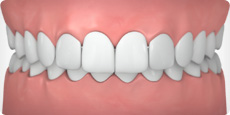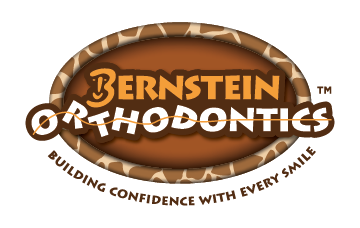Learn About Our Orthodontic Bite Solutions
Achieving a healthy bite is important at any age. Left untreated, crooked teeth can lead to gum disease and create abnormal amounts of stress on teeth and jaws, wearing down your teeth early.
The effects of crooked teeth can get worse over time and can hurt your overall health. Get a free exam by our orthodontists to see if you can benefit from orthodontic treatment.
Impacted Teeth
Impactions can be caused by improper positioning of the developing tooth bud.
This can cause the tooth to fail to erupt into the mouth.
The early loss of primary teeth or crowded teeth can also cause impactions.
Wisdom teeth are the most commonly impacted teeth. Canines and premolars can also be impacted.
This problem should be corrected because it can:
- Cause damage to the root structure of adjacent teeth
- Interfere with the sinus cavity
- Leave unwanted spaces
- Lead to improper functioning of the teeth
- Cause premature wear of the teeth
- Cause asymmetric alignment of the teeth
Crossbites
A crossbite can occur in the front and/or the sides of the mouth. One or more upper teeth bite on the inside of the lower teeth.
This can happen with a single tooth or multiple teeth. Early correction of a crossbite is recommended.
A crossbite should be corrected because it can:
- Cause premature wear of the teeth
- Cause gum disease including bone loss
- Cause asymmetrical development of the jaws
- Cause dysfunctional chewing patterns
- Make your smile less attractive

Open Bite
An open bite is an insufficient vertical overlap of the teeth.
It’s caused by oral habits such as tongue thrust, digit sucking, or when the jaws don’t grow evenly.
The timing of treatment is critical to the overall success of the therapy. When the habit is controlled quickly, less damage is done, and the habit is easier to break. The opposite is true if the habit takes longer to break.

Overbite
An overbite occurs when the upper front teeth protrude over the lower front teeth. Generally, there is no contact between the upper and lower front teeth. Often you cannot see the lower incisors.
Overbite is due to a disproportionate amount of eruption of front teeth or over the bone development that supports the teeth and a front to back discrepancy in the growth of the upper or lower jaw (Class II Relationship). Overbite is also known as a deep bite.
Overbite should be corrected because it can:
- Cause improper functioning of your front teeth
- Result in the lower front teeth biting into the gum tissue of the upper palate leading to tissue problems
- Unusual wear of the lower front teeth
- Cause jaw or joint problems
- Make your smile less attractive

Overjet
Overjet is also known as protrusion. In this case, the lower teeth are too far behind the upper front teeth.
This can be caused by an improper alignment of the molars (Class II Relationship), a skeletal imbalance of the upper and lower jaw, flared upper incisors, missing lower teeth, or a combination of all the above.
Also, oral habits such as thumb sucking, finger sucking or tongue thrusting can exacerbate the condition.
Overjet should be corrected because it can:
- Prevent proper functioning of the front teeth
- Lead to premature wear
- Make your smile less attractive

Underbite
This occurs when the lower teeth protrude past the front teeth.
It's usually caused by undergrowth of the upper jaw, overgrowth of the lower jaw, or both. Missing upper teeth can also cause it.
Missing back teeth should be corrected because it can:
- Prevent normal function of front teeth
- Lead to tooth wear
- Cause painful jaw and joint problems

Missing Teeth
Missing teeth is when you miss a tooth or teeth that should normally be present.
This can be caused by trauma or lack of development.
Missing teeth should be corrected because it can:
- Cause chewing or eating problems
- Cause teeth spacing or drifting problems
- Cause premature wear of teeth
- Cause asymmetric alignment of teeth
- Make your smile less attractive
Tongue Thrust
Tongue thrusting is the habit of placing the tongue in the wrong position during swallowing, either too far forward or to the sides.
This constant pressure of the tongue can force the teeth and arches out of alignment.
Tongue thrusting should be corrected because it can:
- Force teeth and arches out of alignment
- Cause periodontal problems
- Cause relapse of orthodontic treatment
- Cause soreness of tongue and teeth
- Cause speech problems
